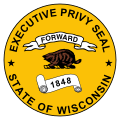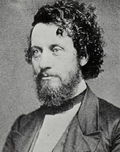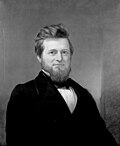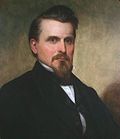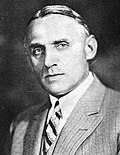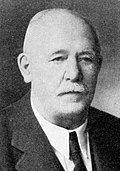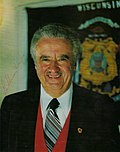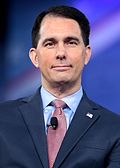Wisconsin Territory
Wisconsin Territory was formed on July 3, 1836. During the time of its existence, the Wisconsin Territory had three people appointed governor by the President of the United States, one of whom served non-consecutive terms.
When most of Wisconsin Territory was admitted as the state of Wisconsin, the remainder became unorganized territory. However, the citizens of the region maintained a territorial government, and even elected a delegate to the United States House of Representatives, essentially making it a de facto continuation of Wisconsin Territory. [10] As the region no longer had an official governor, Territorial Secretary John Catlin acted as governor of the region. [11]
State of Wisconsin
Wisconsin was admitted to the Union on May 29, 1848. Since then, it has had 45 governors, one of whom served non-consecutive terms. [6]
Originally, governors of Wisconsin served for two-year terms, but in 1967 the state constitution was amended to change this to four. [2] Jeremiah McLain Rusk served 1 3-year term in the 1880s as the constitution was amended during his first term to move elections from odd to even years, and all officers were allowed to serve an extra year, rather than have their terms cut a year short. Patrick Lucey, elected in the 1970 election, was the first governor to serve a 4-year term. [6] Governors of Wisconsin are not term limited.
Lucius Fairchild, Jeremiah McLain Rusk, Robert M. La Follette, Emanuel L. Philipp, John J. Blaine, Walter J. Kohler Jr., Warren P. Knowles and Tommy Thompson are one of eight Wisconsin governors to have served three terms. Thompson is the only person to have won four terms having been elected in 1986 and re-elected in 1990, 1994 and again in 1998 before resigning in February 2001.
The state constitution provides for the election of a lieutenant governor; originally, the governor and lieutenant governor were elected on different tickets, and thus were not necessarily of the same party. Since the 1967 amendment, however, the two have been nominated, and voted on, together. [2] Originally, if the office of the governor was vacant for any reason, "the powers and duties of the office . . . devolve[d] upon the lieutenant governor." In 1979, the constitution was amended to make this more specific: if the governor dies, resigns, or is removed from office, the lieutenant governor becomes governor, but becomes acting governor if the governor is absent from the state, impeached, or unable to carry out of duties. [23] If any of these events occur while the office of lieutenant governor is vacant, the secretary of state becomes either governor or acting governor. [24] Two Wisconsin governors have died while in office, one has died after being elected but before taking office, and four have resigned. [6]
